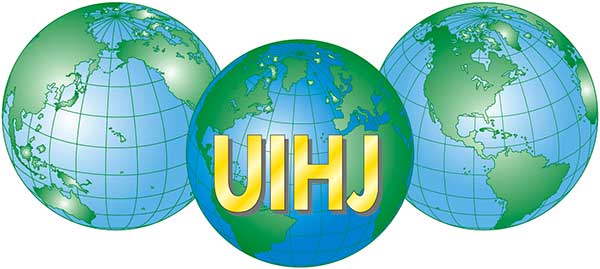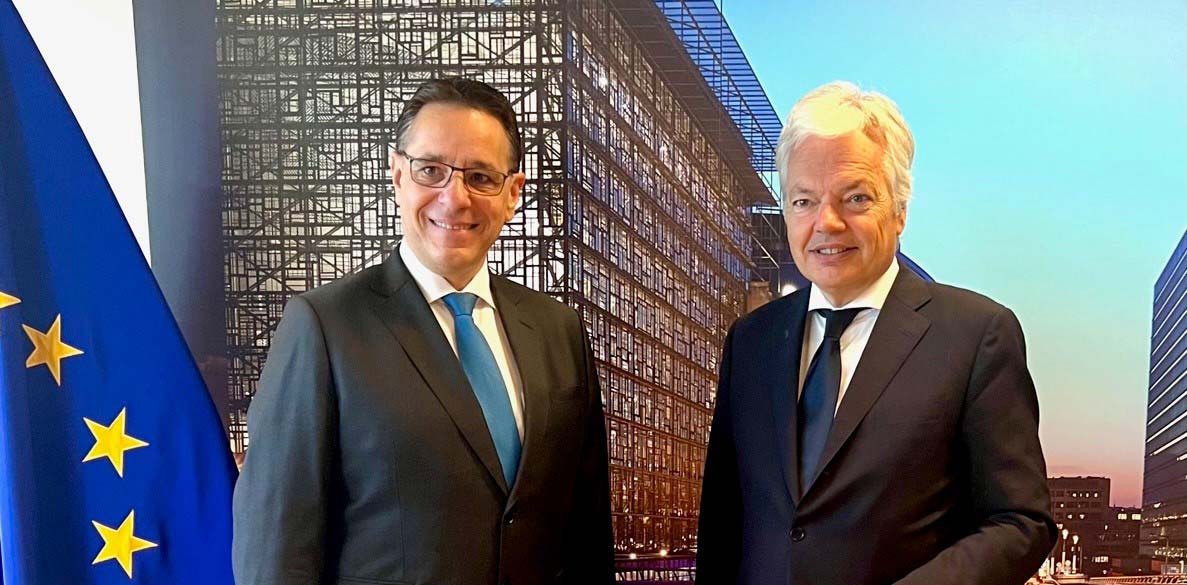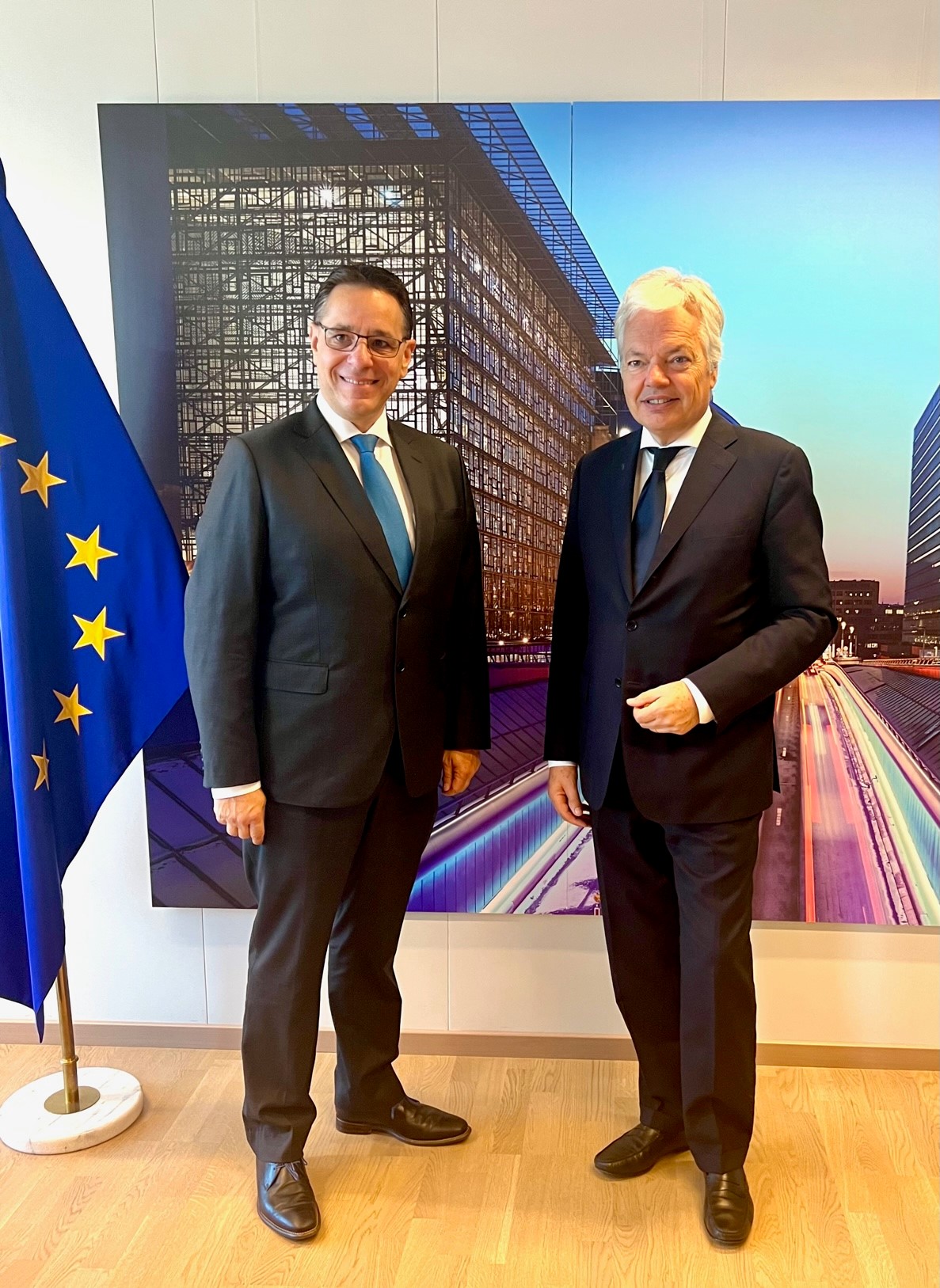Marc Schmitz, President of the UIHJ and of the UEHJ, Carlos Calvo, Secretary of the UEHJ, and Mathieu Chardon, Secretary General of the UIHJ, met Didier Reynders, European Commissioner for Justice, on 12 September 2022 in Brussels, Belgium, at the headquarters of the European Commission.
During a cordial and fruitful exchange, Didier Reynders personally became aware of the work of the UEHJ and the UIHJ in the field of training and digital technologies, at the heart of the concerns of the European Commission.
Marc Schmitz presented the UIHJ to the European Commissioner for Justice, which celebrates its 70th anniversary this year, and the UEHJ, created in 2016 to meet the specific needs of the European Union. He recalled that training is essential for the UIHJ and the UEHJ which regularly carry out face-to-face or online training seminars, in particular for European judicial officers, on the use of European instruments and on enforcement procedures in the various States of the European Union.
Regarding digital technologies, Marc Schmitz specified that after having developed the Global Code of Enforcement in 2015, the UIHJ published in 2021 the Global Code of Digital Enforcement, a copy of each code having been handed to the European Commissioner for Justice. President Schmitz drew Commissioner Reynders’ attention to the multiplicity of digital assets (cryptocurrencies, databases, non-fungible tokens (NFT), domain names, etc.), and the technical and legal challenges involved in their identification, their seizure and forced sale.
The President of the UIHJ and the UEHJ noted that the seizure of digital assets is possible in criminal matters but that no specific legal provision exists to his knowledge in civil and commercial matters. He insisted on the imperative need to legislate, at the national, community and global levels, in a concerted manner, to allow the beneficiaries of a court decision to identify, seize and sell the digital assets of their debtors, whatever form they take and wherever they are kept.
Didier Reynders was particularly receptive to Marc Schmitz’s arguments, telling him of the European Commission’s great interest in working to prevent dematerialised assets from constituting refuges for all those who wish to escape their legal obligations. He added that he believed appropriate for the European Commission to benefit from the experience and expertise of the UIHJ and the UEHJ in the context of its work and projects.






